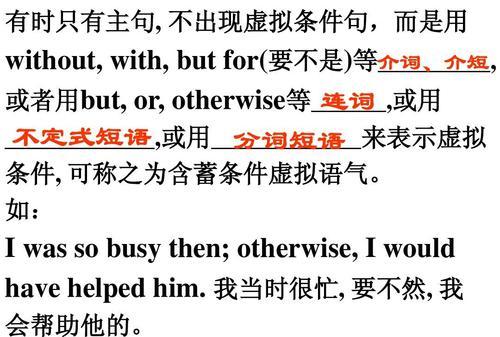"but"虚拟语气在英语中常用于表达与事实相反的假设,提出建议、命令或要求,以及对未来的猜测。例如,“If I were you, I would study harder.”、“I suggest that he leave early.”和“If it rains tomorrow, we'll stay at home.”等。

1. 表达与事实相反的假设
- If I were you, I would study harder. (but I'm not you, so I'm not studying harder.)
- If he had enough money, he would buy a new car. (but he doesn't have enough money, so he can't buy a new car.)
2. 表达建议、命令、要求
- I suggest that he leave early. (but it's up to him whether he leaves early or not.)
- The teacher demanded that the students be quiet. (but the students may or may not be quiet.)
- It's important that you be on time. (but it's up to you whether you're on time or not.)
3. 表达对未来的猜测
- If it rains tomorrow, we'll stay at home. (but we don't know if it will rain or not.)
- If he studies hard, he will pass the exam. (but we don't know if he will study hard or not.)
